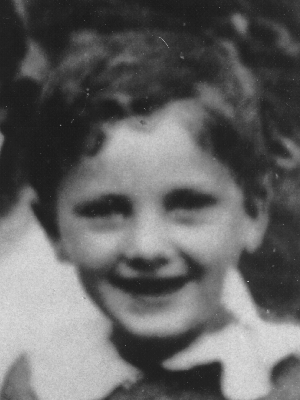
Yezik, the son of Leah (Zylberman) and Leib Wielkabroda, was a five year-old schoolboy when the Germans invaded Poland in September 1939. He lived with his older brother, Albert, and his parents in the small town of Wejherowo. Only 62 Jews lived there. The town was located near the large port city of Gdynia, a major seaport and rail junction. On September 21, 1939, the Nazis decreed that all Jewish communities with less than 500 members were to be dissolved. These Jews were to live in certain restricted areas in the larger cities, or in a poor village region near Lublin.
Yezik and his family were sent to Warsaw, a large cosmopolitan city, and home to Europe's largest Jewish community. The great influx of Jews from throughout rural Poland, and the severe economic repression imposed by the Germans on the entire population, caused great hardship.
In October 1940, Yezik and his family, along with all the other Jews of the city, were forced to leave their homes and live in a run-down area of the city. On November 15, 8-foot walls were built around the ghetto, sealing it off from the rest of the world. Over time 465,000 people were packed into apartments on 73 streets. Lacking money and the means to earn it, most residents were quickly impoverished. Food, medicine and heat were inadequate and thousands died from starvation, exposure and disease. Children risked their lives by smuggling food into the ghetto so that their families could eat. Yet, amidst all the horror, schools and and cultural events were organized.
In July 1942, the Germans began rounding up and deporting the ghetto residents in massive raids. Few were exempt. Packed like cattle into freight cars, they were sent to the nearby Treblinka death camp, where almost all were immediately taken to the gas chambers and murdered.
By September 1942, only 60,000, mostly young men and women, were left in the ghetto. They were the last remnants of their families, and they resolved to fight the Germans. On Passover eve, April 19, 1943, the Germans began what they believed was to be the final round up and deportation. Instead, they were met with organized, armed resistance. The Germans began systematically burning buildings in order to force people out of hiding. Armed mostly with grenades and other incendiary devices, the young Jewish fighters fought the Germans, house by house, for almost a month. The ghetto was turned into one great burning torch. On May 16, it was over. No details are known about the ultimate fate of Yezik and his family. They were never heard from again.